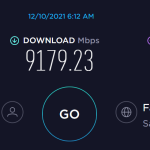How To Improve Your Internet and Network Security
Internet and network security is likely not something that is a top concern for many. But in today’s interconnected world, it should be a top priority for individuals and businesses alike. With the growth of identity theft and ever evolving cyber threats, it is essential to stay proactive and implement effective security measures online. To help you safeguard your online presence, we’ve compiled a list of top expert tips to improve internet and network security. Following these recommendations can enhance your protection against potential cyber-attacks and safeguard sensitive information.
1. Utilize QR Codes Safely & Securely
QR codes have become increasingly popular for various purposes, such as sharing links, making payments, or accessing information quickly. However, exercising caution when scanning QR codes is vital to ensure your online safety. Cybercriminals have started leveraging malicious QR codes to direct users to phishing websites or install malware on their devices. Take advantage of free dynamic QR Codes for an unlimited provision to help market your site. To use QR codes securely, follow these guidelines:
- Verify the source: Only scan QR codes from trusted sources. Be cautious when encountering QR codes in public spaces or received via email or messaging apps.
- Be wary of free dynamic QR codes: While legitimate services offer free dynamic QR codes, exercise caution when using them.
- Inspect the QR code: Before scanning it, visually inspect it for any signs of tampering or irregularities.
- Use a QR code scanner from a trusted source: Download a reputable QR code scanning app from a trusted source, such as your device’s official app store – (in most cases the Apple App Store or Google Play).
2. Use Strong, Unique Passwords For Accounts
A huge first step to ensuring security online is by taking personal data security and a secure only presence seriously. And one of the most critical aspects of maintaining a secure online presence is using strong, unique passwords for different accounts. Avoid common passwords like “123456” or “password,” or replicating passwords across multiple accounts. Don’t make it easy to get hacked. Certainly don’t make ALL of your accounts easy to hack by using the same password. Instead, opt for longer, complex passwords that include a mix of uppercase and lowercase letters, numbers, and special characters. Additionally, consider utilizing a reliable password manager that generates and securely stores your passwords, ensuring their uniqueness and reducing the risk of password-related vulnerabilities.
3. Enable Two-Factor Authentication (2FA)
Two-Factor Authentication (2FA) adds an extra layer of security to your accounts by requiring two different verification methods. Typically, this involves entering a password and then providing a second form of authentication, such as a unique code sent to your smartphone. Enabling 2FA significantly reduces the chances of unauthorized access to your accounts. This is because, even if your password is compromised, a potential attacker would still need the second authentication factor to gain entry. Enable 2FA whenever possible, especially for sensitive accounts such as email, online banking and social media.
4. Keep Your Devices & Software Up to Date
Outdated software and operating systems (OS) often contain security vulnerabilities that hackers can exploit. Keep all your devices, including smartphones, computers and routers, protected and updated with the latest security patches and firmware updates. For businesses, this may also checking to ensure your firewall is functioning as it should be, by blocking unwanted traffic and threats. Enable automatic updates whenever possible to ensure you receive critical security fixes as soon as they become available. Regularly updating your software and devices is a simple yet effective way to stay ahead of potential threats and safeguard your network.
Remember, maintaining Internet and network security is an ongoing endeavor. Stay informed about the latest security practices. Update your knowledge about emerging threats. Employ a multi-layered approach to protect your digital presence effectively. By implementing these expert security tips, including the cautious use of QR codes, you can significantly enhance your online security and reduce the likelihood of becoming a victim of the latest cyber attacks.







